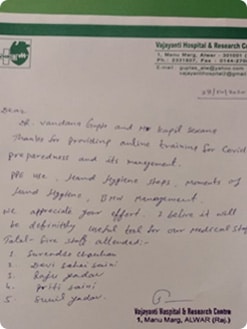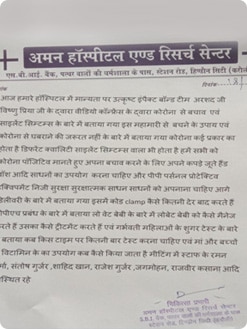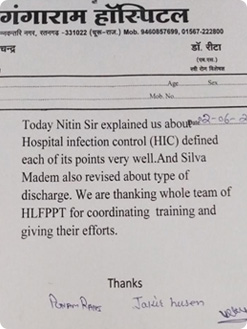Couple Years of Protection:
1,59,72,012: Male Condom
14,53,802: OCP
18,75,063: IUCD
7,839: Male Sterilisation
13,26,949: Female Sterilization
27,325: Injectable – DMPA
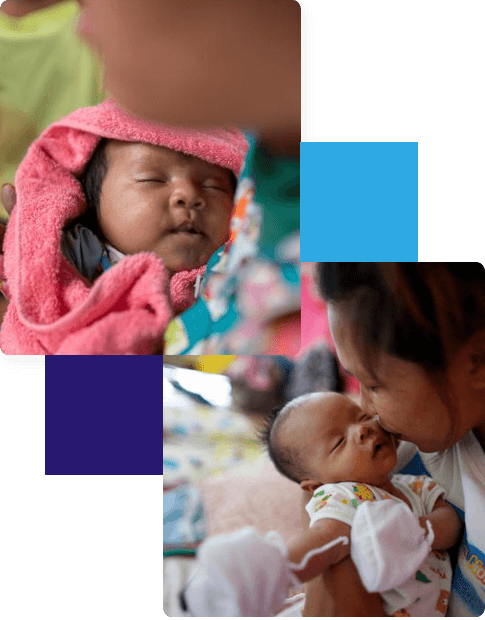
In an unfortunate paradox for the fastest growing economy in the world, India has a Maternal Mortality Rate (MMR) as high as 8.8% and an annual basis more than 44,000 women in India die on account of reventable causes associated with pregnancy. Maternal and newborn health is a significant challenge in India. Rates of maternal and newborn mortality remain high compared to rates in other countries. Within India, the state of Rajasthan has one of the highest maternal and neonatal mortality rates. To date, there have been a number of programmes supporting maternal care, including provision of incentives for mothers to give birth in facilities. However, these programmes have not significantly reduced morality rates. This might be due to the quality of maternal and neonatal care provided in facilities.
According to the special bulletin on Maternal Mortality in India 2016-18, issued by the Office of the Registrar General’s Sample Registration System (SRS), the Maternal Mortality Ratio (MMR) in India was 130 per 100,000 births, in Rajasthan (2014-2016).
The Government of Rajasthan, therefore prioritized improvements in the quality of the services offered in public facilities, which have to comply with government standards and benefit from a number of interventions.
Let’s first understand what an Impact Bond is and then, trace our path further. Impact Bonds (IBs) are outcome-based projects. They utilize private funding from stakeholders to finance the initial capital needed to establish and deliver a service. The service is structured to produce measurable and concrete results. The investor is remunerated, only if the set deliverables are obtained.
Development Impact Bonds (DIBs) are the IBs where a foreign donor is the outcome payer– a government relief agency, a multilateral agency, or a philanthropic organization – is a result payer. Development Impact Bonds are a variation on Social Impact Bonds (SIBs).The principle for DIB is that all partners agree on a common goal and a way to measure success.
Impact bonds bring together five key partners to deliver better outcomes for a target group: the outcome payer, the implementer, the service provider, the independent verifier, and the investor.
The Utkrisht Development Impact Bond, which is the world’s first healthcare impact bond, is one significant avenue for enhancing maternal health outcomes. The aim of the program is to minimize maternal and child mortality in Rajasthan, India. The initiatives are aimed at meeting the NABH (National Accreditation Board for Hospital & Healthcare providers) Small Healthcare Organization (SHCO) Entry-level qualification requirements and the Manyata standards for healthy distribution, which were introduced by the Federation of Obstetric & Gynecological Society of India (FOGSI).
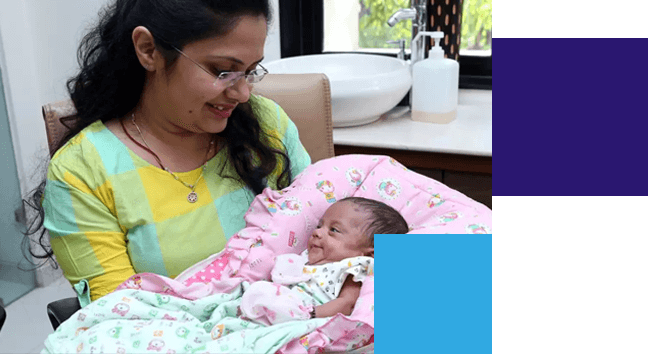

The Utkrisht Development Impact Bond, also known as the Maternal and Newborn Health Development Impact Bond, is one of the most visionary impact bonds to date. Hence, abiding to the meaning of the word “Utkrisht”, this means “excellence” in Hindi.
The role of the HLFPPT team was to provide technical support to engaged private healthcare facilities attain the level of quality that enables them to be certified under a joint quality standard (JQS) consisting of the Manyata initiative, a new national certification and quality improvement system to recognize private facilities who consistently deliver quality care to the women they serve; and the National Accreditation Board for Hospitals (NABH) Small Health Care Organization entry-level certification.

Merck for Mothers and USAID pay principal plus return if applicable to UBS Optimus Foundation for achievement of pre-defined goals.

Mathematica will verify outputs and outcomes are achieved within contractual timeframes.

UBS Optimus Foundation grants capital to Service Providers via the Implementation Manager to deliver program.

Palladium drives achievement of target outputs and outcomes through active performance management and management of multiple stakeholders.

PSI and HLFPPT receive net grant to deliver results. Targeted to increase the number of high-quality private sector maternal and baby
HLFPPT as provider offers a service intended to meet the needs of those beneficiaries and to achieve the outcomes desired. HLFPPT was able to engage and provide handholding support more than 270 facilities in 19 districts through capacity building activities on NABH and Manyata standards with the overall objective to improve quality of care. HLFPPT team supported the engaged facilities for implementation of Joint Quality standards (NABH & Manyata standards). The efforts were not just limited to implementing these quality standards, but the facilities were encouraged to achieve the quality accreditation. On one hand, the patients were provided with quality services leading to better patient health outcomes. On the other hand, these accreditations were a reward for the time, money and resources invested by the facilities.
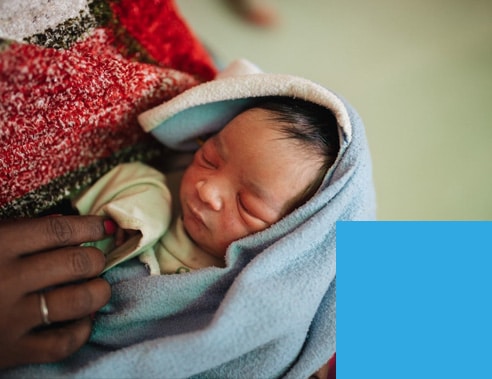
DIB project was implemented over a period of 3 years across the state in a phased manner. HLFPPT mapped all the allocated districts to identify the available private healthcare facilities.
| Year-1 (2018-2019) | Year-2 (2019-2020) | Year-3 (2020-2021) | Program Deliverables | Achievement | More than 50 certification facilities | More than 90 certification facilities | More than 140 certification facilities | Overall Achievement 235+ certification facilities |
During the whole period, the team supported the engaged facilities for implementation of Joint Quality standards (NABH & Manyata standards). The efforts were not just limited to implementing these quality standards, but the facilities were encouraged to achieve the quality accreditation.
On one hand, the patients were provided with quality services leading to better patient health outcomes. On the other hand, these accreditations were a reward for the time, money and resources invested by the facilities.
IMPLEMENTATION IN May 2018.
Manyata Accreditations: Applied for Certification-235+ and Certificate Awarded- 235+
The Utkrisht impact bond is the world’s first health development impact bond and the largest and most ambitious impact bond to date.
Impact bonds are an innovative way of financing international development. They are 100% focused on outcomes and have the potential to leverage private philanthropic capital to address some of the world’s greatest challenges.
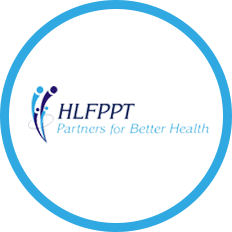
Through this critical intervention we would be directly reaching to around 11.79 million women of reproductive age group and indirectly covering a catchment area of 40.96 million population
NABH Entry level accreditation: Total Applications- 160+ and Certificate Awarded- 100+
It will improve the quality of maternal care in Rajasthan’s private health facilities by supporting Small Healthcare Organizations (SHCOs) to meet new government quality standards and adhere to them over the long term.
HLFPPT & PSI will reach up to 600,000 pregnant women with improved care during delivery and could lead to up to 10,000 maternal and newborn lives being saved over a five year period.
On 31 August 2020 at midnight, an un-scheduled full term pregnant beneficiary with intense Labour pain was admitted to a facility in Karauli. Later when the gynaecologist conducted an USG she realized that the pregnancy was breech. The beneficiary‘s due date was in the first week of October 2020 which was approximately 5 to 6 weeks post the current date. The gynaecologist immediately instructed her staff to make all the arrangements for the beneficiary. After further examination, it was found that she was in full dilatation & while analysing her condition they realized that the beneficiary‘s family has earlier attempted a normal delivery at home also. The situation was critical and posed a threat to both the beneficiary and the new-born. The facility staff was trained on MANYATA standards and was recently awarded with the certification also. They were well prepared to manage the complications that may arise to the beneficiary and new born during the process. The staff adhered to all the prescribed protocols as per MANAYTA standards to safely conduct a pre-term delivery. The staff shifted the beneficiary without any delay and ensured the readiness of all requirements in the Labour room such as availability of oxygen cylinder with wrench, working suction machine, turned-on radiant warmer, check for all emergency medicines required for resuscitation of new-born, Ambu bag with 0 mask (for preterm baby), laryngoscope with extra cells, shoulder -roll and all kits required for management of complication. Due to the new-born‘s breech position, the team was expecting a few complications. The gynaecologist and her team efficiently delivered the baby following all necessary precautions but the new-born did not cry. The team without any delay successfully resuscitated the new born according to the protocols of New Born Resuscitation and were able to revive the baby. Following this the new born was referred to a higher centre for intensive care & treatment. Due to timely interventions taken by the gynaecologist & her staff a life was saved. The beneficiary and her family members were overwhelmed and grateful to all the facility staff. Timely diagnosis and treatment planning helped in ensuring positive treatment outcome. The gynaecologist and her team gave full credit to HLFPPT Teams technical support through UTKRISHT Project.
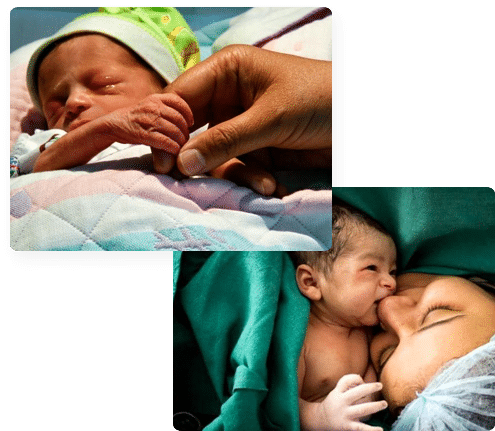
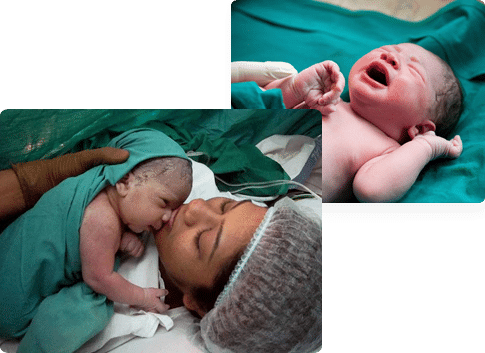
This is story of a 30-year-old pregnant lady who was expecting her first child with 33 weeks of pregnancy. She was taking medical consultation from a known doctor who was few minutes away from her house. The doctor had advised her to visit at fortnightly from 8th month onwards. As advised, she made a call to seek consultation but to her surprise, Doctor refused to give appointment & asked to visit after few days. Sanju called her again after a few days ; yet again the doctor refused the appointment without an appropriate reason. Sanju was in a lot of stress & was unable to understand the situation. She tried to reach other private hospitals too but everyone denied registration. After that, one of her relatives told her about Dr Leena Jain and asked to contact her immediately for consultation. After hearing her condition, Doctor asked her to visit hospital for consultation. This was a sign of relief for her.
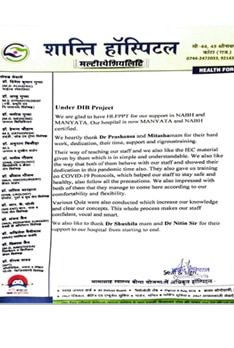
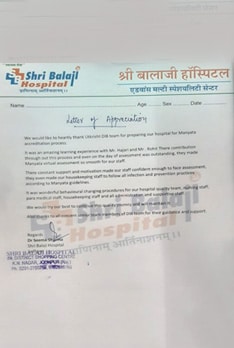
During her visit to the hospital, she was quite impressed with the clean ambience. The hospital was well managed and all precautions were followed. In the OPD area, there were separate entry & exit ways. All the patients were sitting at distance from each other. All the patients & staff were wearing masks and were given sanitizers before entering the hospital. The doctor was so polite and humble; this gave Sanju a feeling of calmness and security. Dr. Leena Jain examined her and registered her in her booked cases. She was then asked to visit after 7 days for few tests. According to Sanju, Dr. Leena Jain had come as a blessing in disguise for her. Sanju says “I am thankful to Rajat Maternity and General Hospital specially Dr. Leena Jain for their warm response” Thank You for saving my Child.

